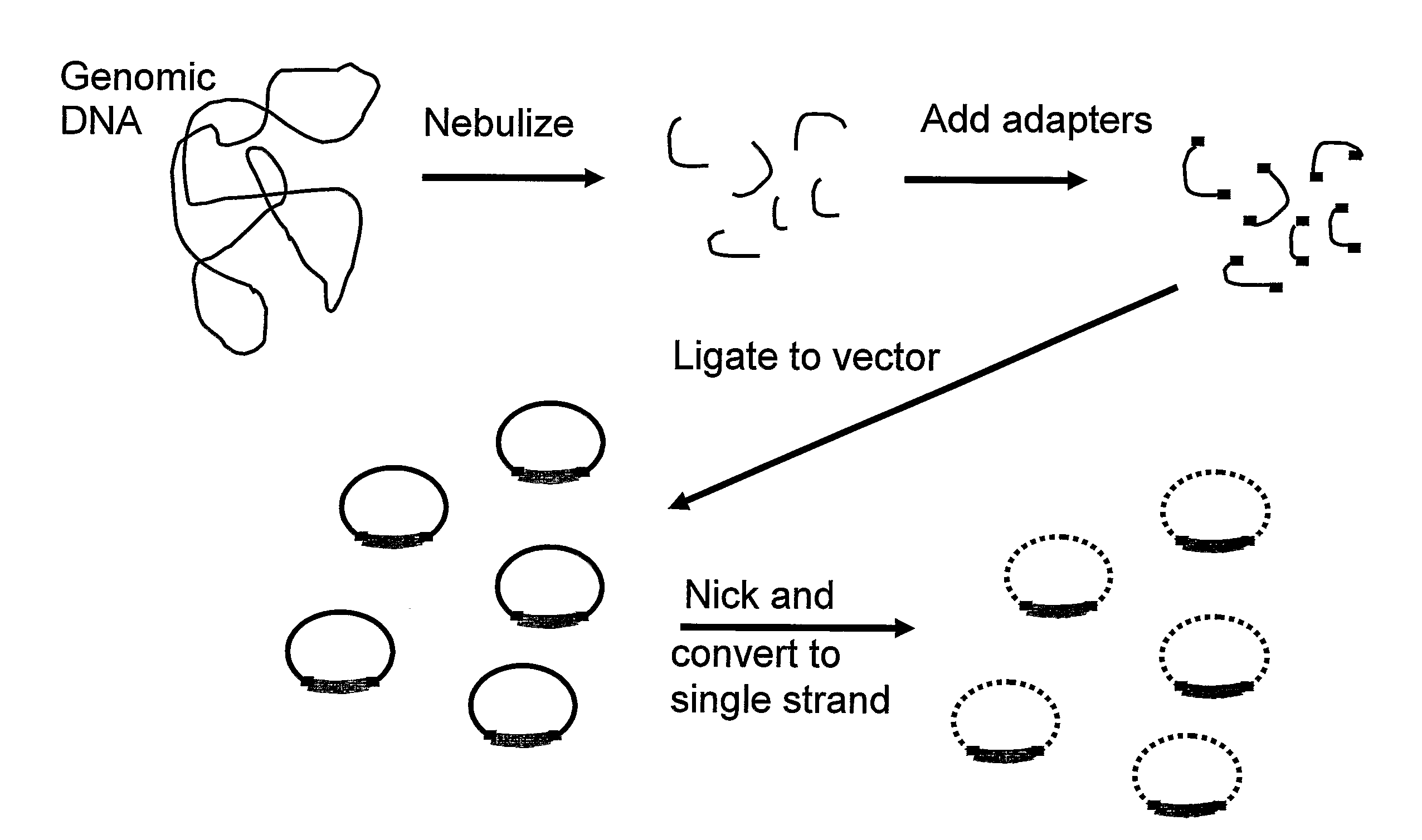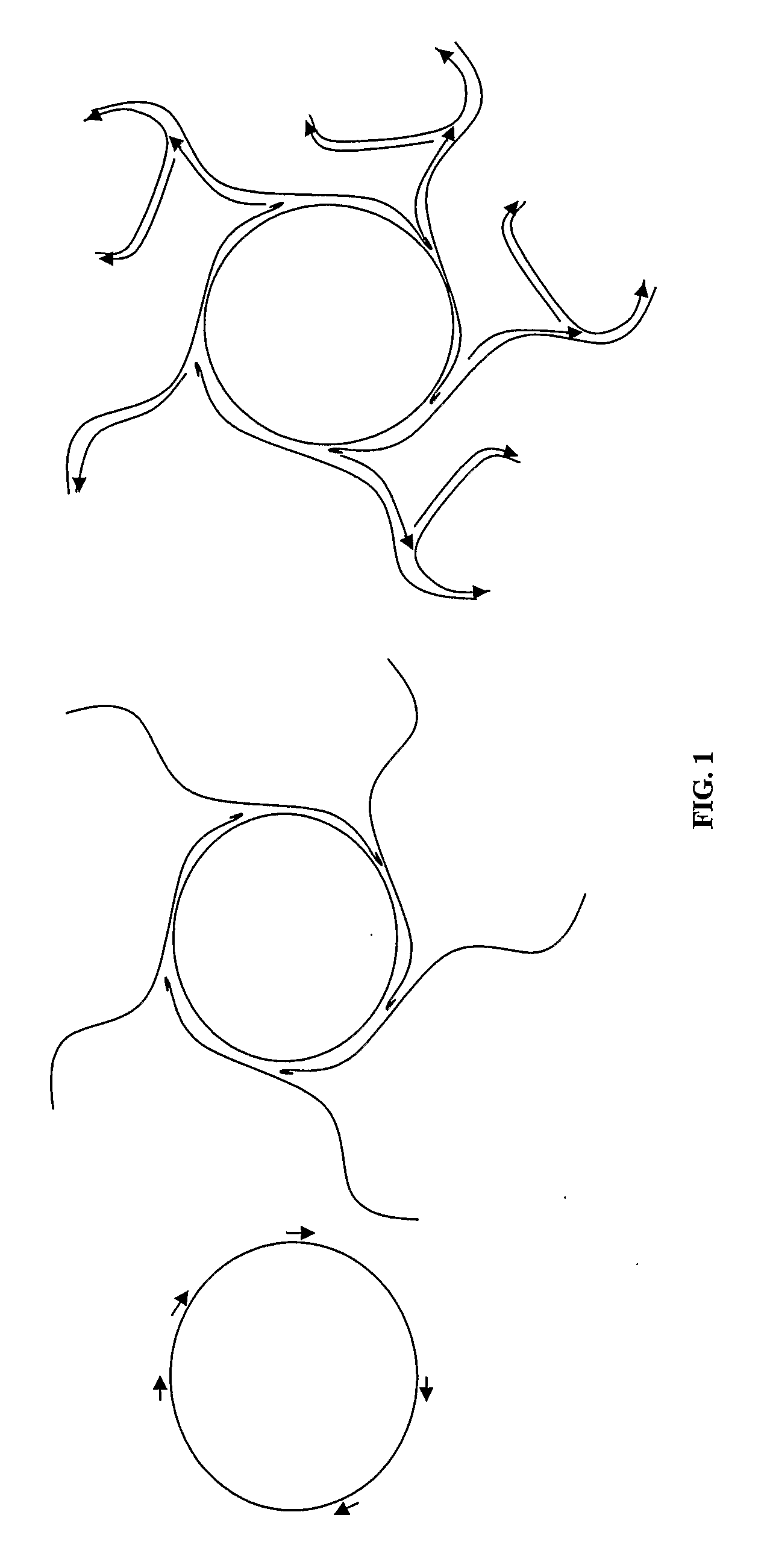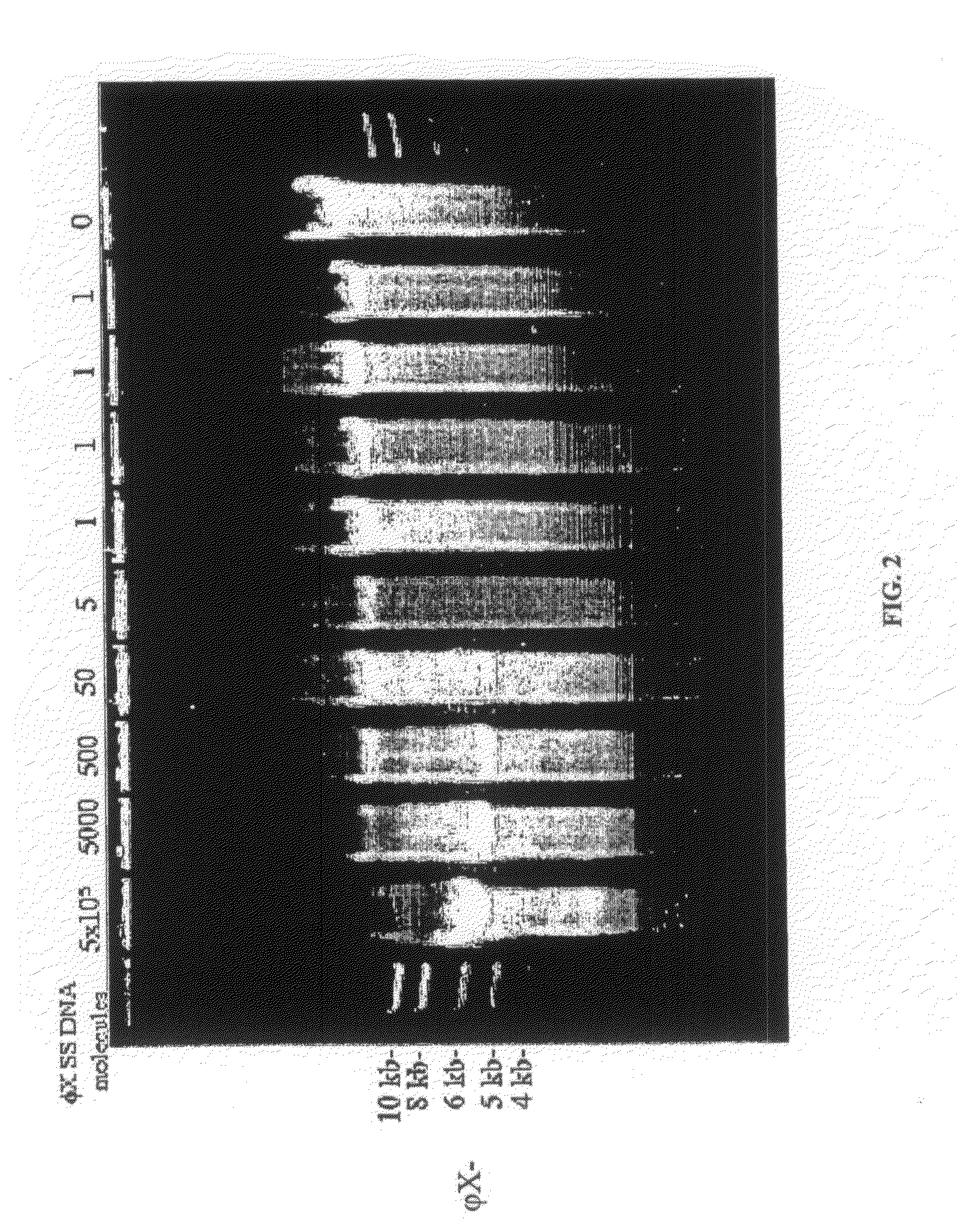Amplification and cloning of single dna molecules using rolling circle amplification
- Summary
- Abstract
- Description
- Claims
- Application Information
AI Technical Summary
Benefits of technology
Problems solved by technology
Method used
Image
Examples
example 1
Material and Methods
[0119]DNA preparations. ΦX174 am3cs70 single-stranded virion DNA, and M13 mp18 single-stranded DNA were obtained from New England BioLabs (NEB, Beverly, Mass.). The DNA referred to as syn ΦX in the text was the ligated circular double-stranded synthetic ΦX174 DNA described by Smith et al. (2003) Proc. Natl. Acad. Sci. USA 100, 15440-445. The M. genitalium genomic DNA library was prepared from DNA isolated from strain G37, obtained from the ATCC in 1996. DNA sheared to 1.5-2.2 kb was cloned into a medium copy pBR322 derivative as described previously (Adams et al. (2000) Science 287, 2185-95).
[0120]Enzymes. Φ29 DNA polymerase was purchased from NEB in pure form at a concentration of 10,000 units / ml. Inorganic pyrophosphatase from USB Corporation was supplied at 40 units / ml. Restriction enzymes were from NEB.
[0121]Φ29 polymerase amplification reactions. Reactions contain 37 mM Tris-HCl (pH7.5), 50 mM KCl, 10 mM MgCl2, 5 mM (NH4)2SO4, 1 mM each of the four dNTPs, 1 ...
example ii
Background Synthesis Increases with Decreasing Amount of Template, and Signal to Background Ratio Improves for Small Reactions
[0125]As the amount of template DNA in a Φ29 polymerase rolling-circle amplification reaction is decreased, the amount of background synthesis increases. If the template is circular ΦX174 single-stranded DNA (FIG. 2) then Pst I cleaves authentic amplification product at the unique site to produce 5.4 kb linear DNA. The background product, however, does not in general contain Pst I sites and migrates as large DNA, making it easy to distinguish from the rolling-circle amplification product of ΦX174 (FIG. 2).
[0126]As the reaction volume is decreased, keeping the amount of template DNA constant, background is dramatically decreased with a marked improvement in signal to noise ratio (FIG. 3A). Using 50 molecules of single-stranded M13 DNA (7.2 kb) as template, a Pst I digest of a 3 μl of a Φ29 polymerase reaction displayed a clear band (>10 ng) of M13 linear. When...
example iii
End Point Dilution and Cell-Free Cloning of Single Molecules
[0127]Using 600 nl φ29 polymerase reactions, we have amplified single molecules more than 109-fold to give 10 ng or more of product DNA, allowing easy visualization by ethidium bromide staining following gel electrophoresis. FIG. 4 displays gel electrophoresis of twenty duplicate 600 nl φ29 polymerase reactions digested with Pst I. The template for each reaction was 200 nl of the same diluted mixture of φX174 (5.4 kb) and M13 (7.2 kb) single-stranded DNAs, each of which contains a unique Pst I site. Some lanes appear to contain neither φX nor M13 (11 / 20), some φX only (2 / 20), some M13 only (5 / 20), and some both (2 / 20). Cloning of φX174 and M13 from a mixture has been confirmed by PCR and real-time PCR analysis of reactions like those shown in FIG. 4, demonstrating that some reactions are positive for each of the molecules but completely negative for the other (data not shown). Some lanes in FIG. 4 display bands that are not...
PUM
| Property | Measurement | Unit |
|---|---|---|
| Molar density | aaaaa | aaaaa |
| Volume | aaaaa | aaaaa |
| Volume | aaaaa | aaaaa |
Abstract
Description
Claims
Application Information
 Login to View More
Login to View More - R&D
- Intellectual Property
- Life Sciences
- Materials
- Tech Scout
- Unparalleled Data Quality
- Higher Quality Content
- 60% Fewer Hallucinations
Browse by: Latest US Patents, China's latest patents, Technical Efficacy Thesaurus, Application Domain, Technology Topic, Popular Technical Reports.
© 2025 PatSnap. All rights reserved.Legal|Privacy policy|Modern Slavery Act Transparency Statement|Sitemap|About US| Contact US: help@patsnap.com



